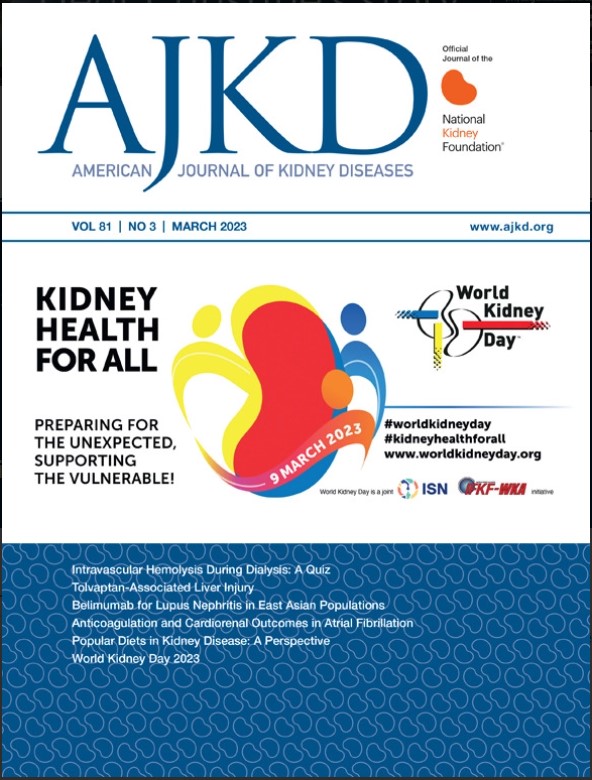Understanding Rare Kidney Stone Diseases: A Review
IF 8.2
1区 医学
Q1 UROLOGY & NEPHROLOGY
引用次数: 0
Abstract
Rare kidney stone diseases typically present with nephrolithiasis or nephrocalcinosis in childhood or adolescence. Affected individuals might face kidney injury and even kidney failure related to associated complications. Screening blood and urine tests recommended for patients with nephrolithiasis and/or nephrocalcinosis help guide further evaluation, and the increased availability and decreased costs of genetic testing can facilitate the diagnosis of hereditary stone conditions. Genetic testing should be considered when there are clinical clues of an increased likelihood of an inherited condition such as consanguinity, nephrolithiasis in young children, nephrolithiasis in multiple family members, repeated episodes of nephrolithiasis, or kidney failure with nephrolithiasis or nephrocalcinosis. Adult and pediatric nephrologists and urologists should have a basic understanding of monogenic rare kidney stone diseases and their associated diagnoses, treatments, and complications. In many disorders, early detection allows for the initiation of tailored therapies that may alter the natural history of the disease, preserve kidney function, and modify extrarenal manifestations.
了解罕见肾结石疾病:综述。
罕见的肾结石疾病通常表现为儿童期或青春期肾结石或肾钙质沉着症。受影响的个体可能面临肾损伤甚至肾衰竭相关的并发症。建议对肾结石/肾钙质沉着症患者进行血液和尿液筛查,有助于指导进一步的评估,基因检测的可用性增加和成本降低有助于遗传性结石的诊断。当有临床线索表明遗传性疾病的可能性增加时,应考虑进行基因检测,如血亲,幼儿肾结石,多名家庭成员肾结石,反复发作的肾结石,或肾结石或肾钙质沉着的肾衰竭。成人和儿童肾病学家和泌尿科医生应该对单基因罕见肾结石疾病及其相关的诊断、治疗和并发症有基本的了解。在许多疾病中,早期发现允许开始量身定制的治疗,这可能会改变疾病的自然史,保持肾脏功能,并改变肾脏的额外表现。
本文章由计算机程序翻译,如有差异,请以英文原文为准。
求助全文
约1分钟内获得全文
求助全文
来源期刊

American Journal of Kidney Diseases
医学-泌尿学与肾脏学
CiteScore
20.40
自引率
2.30%
发文量
732
审稿时长
3-8 weeks
期刊介绍:
The American Journal of Kidney Diseases (AJKD), the National Kidney Foundation's official journal, is globally recognized for its leadership in clinical nephrology content. Monthly, AJKD publishes original investigations on kidney diseases, hypertension, dialysis therapies, and kidney transplantation. Rigorous peer-review, statistical scrutiny, and a structured format characterize the publication process. Each issue includes case reports unveiling new diseases and potential therapeutic strategies.
 求助内容:
求助内容: 应助结果提醒方式:
应助结果提醒方式:


